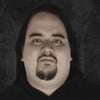The english version follows after the portuguese version.
Versão em Português
Não dá para começar qualquer discussão sem saber por onde estudar e eu digo mais: isso de estudar nunca vai terminar. Desde que entrei na faculdade de engenharia elétrica e tomei minha duas dependências mais marcantes que me fizeram estudar muito e amar a coisa, eu venho sempre estudando mais, aumentando mais ainda a carga durante a faculdade.
A velha polêmica: vale a pena fazer faculdade na área?
Eu sempre leio em diversas publicações de grandes influenciadores essa discussão. E em fóruns da internet. Enfim...
Aprender a programar coisa básica você realmente não precisa de faculdade na área, isso é fato. E se o cara é inteligente, extremamente auto-didata (e sim, existem esses malucos), ele consegue uma evolução incrível sem fazer faculdade MAS vai fatalmente estudar livros, pesquisar na internet, fazer algum curso, bater a cabeça de maneira empírica e terá que percorrer um caminho de estudos muito próximo de quem fez uma faculdade. Ou seja, ele "fugiu" da Academia formalmente, mas teve que a seguir em paralelo ao ter que estudar e ralar.
Um curso de Ciências da Computação é muito mais profundo em programação do que as Engenharias (Computação e Elétrica), Matemática Computacional e outros similares (Análise de Sistemas, Sistemas da Informação, Física, etc.), que também dão boa base de ensino na área. Mas seja qualquer um desses cursos, você terá que estudar aquilo que te faz falta para se equiparar com quem fez Ciências - seja para competir no mercado, em alguma área em específico, seja para enfrentar uma carreira acadêmica. E se você faz uma outra engenharia (mecânica, civil, etc.), você terá que ralar mais ainda, apesar da base matemática e fundamental de computação ter sido aplicada nesses cursos... e se você faz Letras, Turismo, etc, é praticamente mudança de área e terá que se "formar" em paralelo de tanto estudar para se equiparar. E se você nunca fez faculdade, nem fez curso técnico e quer atuar na área, boa sorte em estudar tudo (além de programação...) do zero e procurando os bons livros...
E qual seria então a vantagem de fazer logo um curso superior, seja em qualquer situação de desvantagem? A Faculdade, além de te dar o certificado que é valorizado sim pelas grandes empresas e é exigência na carreira acadêmica, te força a sair da zona do conforto tendo que estudar temas que talvez você nunca fosse dar atenção sem ser cobrado formalmente. Fora que é um comprovante de que você dedicou tempo a esses estudos. Quanto mais próximo for seu curso de uma formação dada em Ciências da Computação (o topo do completo), melhor, e quanto melhor for a faculdade (mais renomada, mais cruel na cobrança...), melhor ainda. E seja qual for sua origem acadêmica, a partir do dia zero (ou seja, a formatura!), você deverá fazer o que todos devem fazer: aprender a aprender, ralar, ler livros... estudar muito para sobressair-se. E isso conta mais que sua história de faculdade, que te dará a base inicial (seu v0 da Física) para continuar sua jornada "solitária".
Seu currículo é montado por você com suas certificações, portanto seja sábio nessa construção. E nem vou falar de soft skills, isso seria outro post louco...
Minha trilha pessoal...
Eu fiz Engenharia Elétrica na UNESP - Guaratinguetá. E fiz algo similar à ênfase em Computação, os chamados "Estudos Aprofundados em Computação", que adicionou uma certificação de formação acadêmica.
As duas dependências mais marcantes foram justamente "Computação e Cálculo Numérico" e "Microprocessadores" - as primeiras da área, as fundamentais e as que vejo todos os dias de minha vida. E foi por pura falta de dedicação, não por dificuldade, foi por falta de bom senso de minha parte. Isso me marcou tanto, que depois em outras matérias da área de computação eu não tive dificuldade e desenvolvi-me sempre em estudar para aprender mesmo. Descobri nessa queda que isso era minha praia e tive que ralar nas demais de Engenharia Elétrica (que daria outro post... esse mais complexo) para poder me formar e trabalhar.
A minha metodologia preferida de estudo é: leitura de livros técnicos e de autores renomados, essa é minha base formal de estudos. Às vezes fazer um curso livre é importante (já fiz vários) mas não espero dos mesmos a plenitude de aprendizagem - é mais aquele "v0" ou a necessidade formal para alguma certificação. Em geral os cursos livres geram mais dúvidas (e isso é o que espero deles!) e me forçam a ler mais livros.
Hoje sou aluno especial de Mestrado em Ciências da Computação da UNICAMP / Instituto de Computação, após 17 anos longe da Academia. E pretendo seguir carreira acadêmica. No Mestrado (para quem um dia quiser se aventurar), a dinâmica é bem diferente do que temos em Graduação, pois você precisa já entrar sabendo, com uma carga de conhecimento inicial e leitura grandes. A leitura de livros ultrapassa aquilo que é recomendado inicialmente no início das aulas - sem isso, não acompanhamos o raciocínio da turma. Para falar a verdade, temos que ler muito, independente da obrigatoriedade das disciplinas, e que nos faz estar com fatos e dados nas mãos durante as argumentações e discussões.
Se você for ver, quanto mais você estudar, quanto mais difícil for sua trilha, mas forte você fica. Um cara que fez a faculdade com amor, com vontade mesmo, terá uma base teórica enorme; se o cara avança no Mestrado, Doutorado, ele vai além em conhecimento - é capaz de gerar pesquisa e resultados científicos incríveis, além de gerar base técnica para empreendedorismo e inovação. Estudar nunca é demais!
Aprendendo a aprender, fuçar redes sociais, ler livros, tudo isso é parte do desenvolvimento profissional. Cada um tem sua fórmula, mas a minha, se me perguntam, é essa.
No próximo post, para não deixar esse aqui tão imenso, falarei dos livros que ando estudando, dos que já li. E também recomendarei cursos interessantes que vi e indico, para ajudar nesse trabalho. Tanto os técnicos quanto os de inglês - sem inglês, sem chance alguma de avançar com os melhores artigos e livros que temos pela internet.
Ótimos vídeos (do Fabio Akita, ao qual mencionarei sempre!) para fazer os olhos se abrirem, bem como o coração de quem quer aprender:
Guia DEFINITIVO de Aprendendo a Aprender | A maior BRONCA da sua vida [RATED R]
https://www.youtube.com/watch?v=oUPaJxk6TZ0&t=2964s
A Dor de Aprender | Que Cursos/Livros?
https://www.youtube.com/watch?v=HEaIsKm-pao&t=15s
English Version
Impossible to start any discussion without knowing where to study and I'd say more: studying will never end. Since I joined the Electrical Engineering College and took my two most important dependencies that made me study hard and love the area, I have always been studying more, increasing the load even more during college.
The old controversy: is it worth going to College in the area?
I always read this discussion in several publications by major influencers. And on internet forums. Anyway...
Learning to program basic stuff you really don't need college in the field, that's a fact. And if the guy is clever, extremely self-taught (and yes, there are these crazy ones), he can achieve an incredible evolution without going to college BUT he will inevitably study books, research the internet, take a course, hit his head empirically and he will have to follow a path of studies quite close to those who went to college. That is, he formally "fled" from the Academy, but had to follow it in parallel by having to study.
A Computer Science course is much deeper in programming than Engineering (Computer and Electrical), Computational Mathematics and the alike ones (Systems Analysis, Information Systems, Physics, etc.), which also provide a good basis for teaching in area. But be it any of these courses, you'll have to study what you need to be on a par with those who studied Science - whether to compete in the market, in a specific area, or to face an academic career. And if you do another engineering (mechanical, civil, etc.), you will have to work even more, despite the mathematical and fundamental base of computing being applied in these courses... and if you do Languages, Tourism, etc., it's practically changeing the job and will have to "train" in parallel with so much studying to match. And if you've never gone to college or a technical course and want to work in the field, good luck studying everything (besides programming...) from scratch and looking for good books...
And what would be the advantage of taking a university course straight away, whether in any disadvantaged situation? The academy, in addition to giving you the certificate that is valued by large companies and is a requirement in an academic career, forces you to leave your comfort zone having to study topics that you might never pay attention to without being formally charged. Besides, it is proof that you dedicated time to these studies. The closer your course is to a training given in Computer Science (the top of the complete), the better, and the better the faculty (more renowned, harder when facing examinations...), the better still. And whatever your academic background, starting from day zero (I mean, the graduation party!), you will have to do what everyone should do: learn to learn, scrape, read books. And that counts for more than your college history, which will give you the starting point (your v0 of Physics) to continue your "lonely" journey.
Your résumé is put together by you with your certifications, so be wise in this construction. And I'm not even going to talk about soft skills, that would be another crazy post...
My personal trail...
I studied Electrical Engineering at UNESP - Guaratinguetá. And I did something similar to the emphasis on Computing, the so-called "Deep Studies in Computing", which added an academic training certification.
The two most striking dependencies were precisely "Computing and Numerical Calculation" and "Microprocessors" - the first in the area, the fundamental ones and the ones I see every day of my life. And it was for lack of dedication, not for difficulty, it was for lack of common sense on my part. This marked me so much, that later on in other subjects in the computing area I had no difficulty and I always developed myself in studying to learn. I found out during that fall that this was my thing and I had to grapple with the other ones in Electrical Engineering (which would give me another post... this one more complex) in order to be able to graduate and work.
My preferred study methodology is: reading technical books and renowned authors, this is my formal study base. Sometimes taking a free course is important (I've taken several) but I don't expect the fullness of learning from them - it's more that "v0" or the formal need for some certification. In general, open courses generate more doubts (and that's what I expect from them!) and force me to read more books.
Today I am a special student of the Master in Computer Science at UNICAMP / Instituto de Computação, after 17 years away from the Academy. And I intend to pursue an academic career. In the Master program (for those who one day want to venture out), the dynamic is quite different from what we have in Undergraduate, as you need to enter it already knowing, with a load of initial knowledge and great reading. Reading books goes beyond what is initially recommended at the beginning of classes - without this, we do not follow the class's reasoning. To tell the truth, we have to read a lot, regardless of the mandatory nature of the disciplines, and that makes us have facts and data in our hands during arguments and discussions.
If you go see, the more you study, the harder your trail, the stronger you get. A guy who went to college with love, with desire, will have a huge theoretical base; if the guy advances in Masters, Doctorate, he goes beyond in knowledge - he is able to generate research and incredible scientific results, in addition to generating technical basis for entrepreneurship and innovation. Studying never hurts!
Learning to learn, tweaking social media, reading books are all part of professional development. Each one has its formula, but mine, if you ask me, is this one.
In the next post, so as not to make this one so huge, I'll talk about the books I've been studying, the ones I've read. And I will also recommend interesting courses that I have seen and recommend, to help with this work. Both technical and English - without english skill, no chance of coming forward with the best articles and books we have on the internet.
My best recommendation (from Fabio Akita) to open your eyes - hope they have subtitles for english speakers, even from Youtube...:
Guia DEFINITIVO de Aprendendo a Aprender | A maior BRONCA da sua vida [RATED R]
https://www.youtube.com/watch?v=oUPaJxk6TZ0&t=2964s
A Dor de Aprender | Que Cursos/Livros?
https://www.youtube.com/watch?v=HEaIsKm-pao&t=15s






Oldest comments (0)